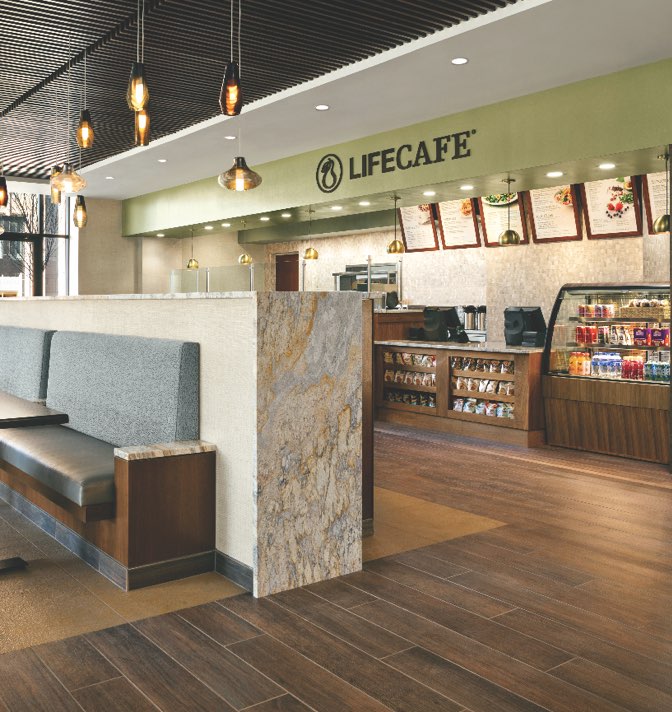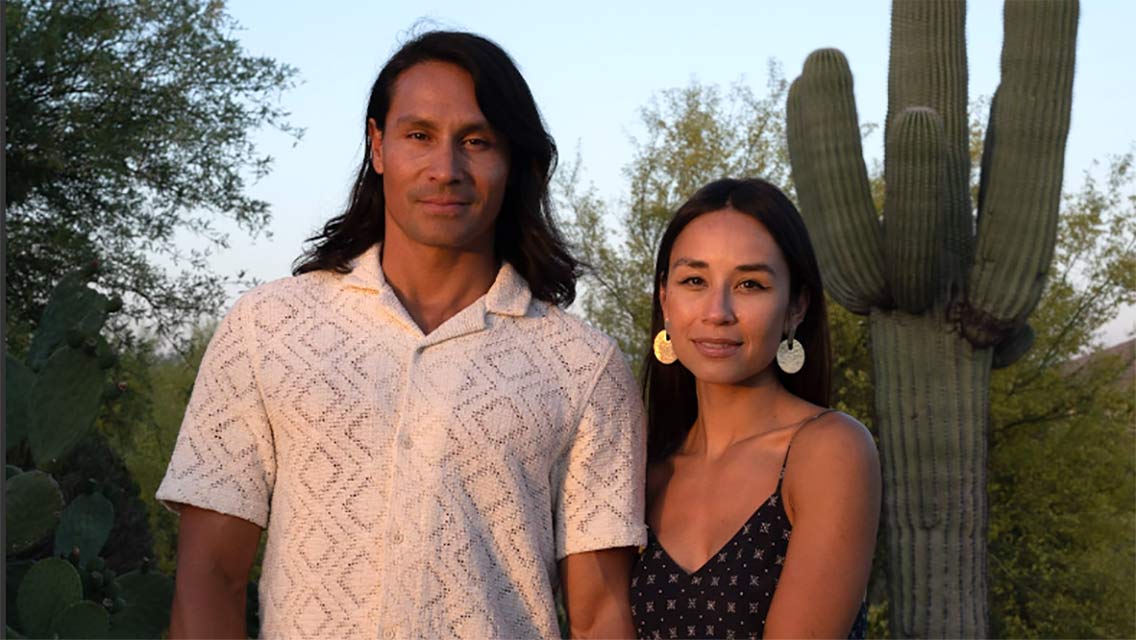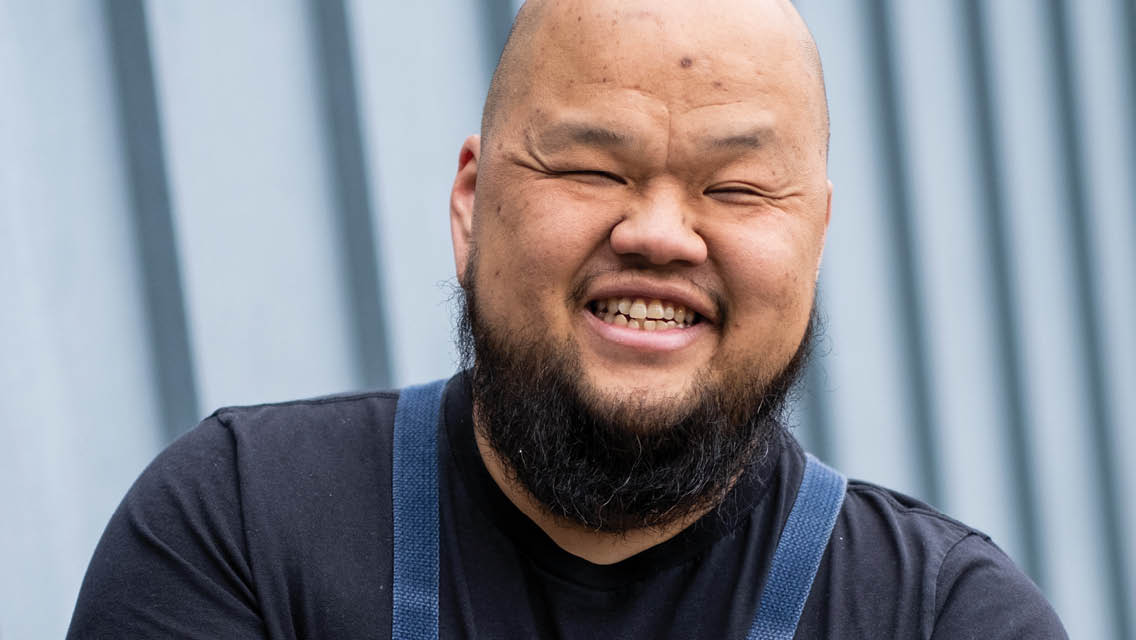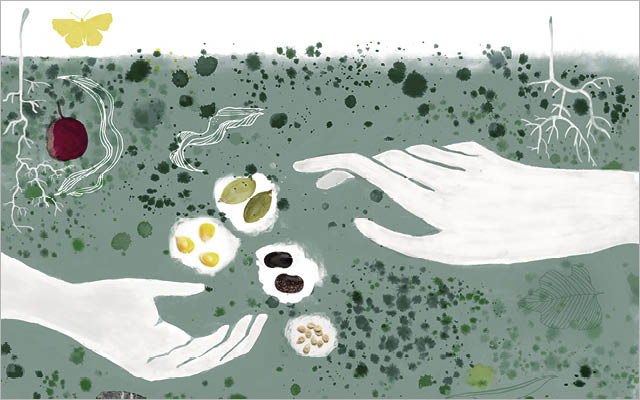Sean Sherman is a member of the Oglala Lakota Tribe and is America’s most prominent Indigenous chef, cooking with Native American ingredients at Owamni, the Minneapolis restaurant he owns with partner Dana Thompson. He also spreads the word on techniques via his cookbook, The Sioux Chef’s Indigenous Kitchen. Along the way, he has won two James Beard Awards.
Sherman found his path after working for Life Time for a couple of years in the mid-2000s, developing menus for LifeCafes. “I was in Mexico and saw Huicholes, an Indigenous people, selling art. I realized I knew more about French and Italian food than I did about my own food. In one swift move, everything I had to do next opened up to me — I had to open a Native restaurant.
“But first I had to research Indigenous food, because a quick online search showed me almost complete invisibility. So I moved to Montana and just started learning about plants and everything else.
“For the rest of my life, my work is going to be educating about Indigenous foods, supporting Indigenous producers, and training a new generation of cooks to pass on what I’ve accomplished.”
Hope in the Shadow of Tragedies
Cooking Indigenous food is daunting for many reasons. There aren’t many cookbooks or chefs to learn from, for one thing. But more importantly because you have to confront Indigenous tragedies and genocides at every turn. How does Sherman cope?
“I think about our success with Owamni,” he says. (The restaurant has drawn rave reviews in the New York Times and elsewhere.) “It’s a proof of concept that there really is a demand for Indigenous American foods. One day, you’ll be able to drive from Maine to Mexico and stop in a dozen Indigenous restaurants along the way. And I think that’s enough. I don’t have to fix the world; I just have to do everything I can to make it better.”
Cooking With Awe and Gratitude
Sherman uses a kitchen tool that inspires gratitude in a new way. “We have a ‘grinding stump,’ a giant mortar and pestle made from a birch log and a big stick: This was how our ancestors ground rice and beans and corn. That gives you gratitude for a blender and awe for what your ancestors accomplished. I really appreciate having reminders in my life of what’s important.”
Ingredient Inspiration
Sherman cooks from a “decolonized kitchen,” relying on ingredients that were available on this land before Europeans arrived — so no sugar, wheat, chicken, or soybean oil. “We use wild teosinte, which was the grandmother of corn. It took so much work to figure out how to cook with it, and as a chef, that gives
me satisfaction.”
Making Space for Emotion
“Nightly, we have people in our restaurant burst into tears. Maybe they have Indigenous heritage and all of a sudden it hits them that they ate a thousand times in an Italian restaurant but never in an Indigenous one. It made me realize: How awesome is it to create a safe space for that emotion to come out?”
This article originally appeared as “Back to the Roots” in the May 2022 issue of Experience Life.






This Post Has 3 Comments
Awesome
I love how your site/magazine addresses subjects such as this. It gives us all “food for thought”.
Thank you!
I’m proud of my NAI heritage and as I continue on my journey to connection and understanding, it’s a pleasure to discover your information on foods long forgotten but that are both beautiful and healthful. Thank you.